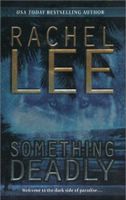The Alleluia Files is the third in Sharon Shinn Samaria series, coming right after her wonderful Archangel and Jovah's Angel.
Note: Just as I did in my review of Jovah's Angel, I must warn you away from the rest of this post if you haven't read the first two books. The very plot of The Alleluia Files is a spoiler for both of them and, unavoidably, so is this review.

Legend has it that the Alleluia Files contain the truth about the god of Samaria. Now, a child raised in captivity among the angels will journey the length and breadth of her world to seek the documents that will alter the face of Samaria forever...
.
An excellent close to this trilogy. I liked it a tiny little bit less than I did
Jovah's Angel, which I liked a tiny little bit less than I did
Archangel, but that's still an
A-.
As I'm sure you remember, in
JA we saw the Archangel Alleluia almost accidentally find out that the god everyone in Samaria worships is actually a spaceship orbiting around the planet, and that the angels are simply humans genetically engineered to fly, with the original intention that they might be able to deliver aural cues from closer by to the spaceship, so that its computer will know when it needs to act to spray chemicals on the clouds to modify the climate, rain down medicine or food, etc.
Alleluia decided not to share this knowledge with the rest of the community, believing they weren't ready to hear the truth. However, as
TAF begins, we see that some glimmers of it somehow did leak out.
It's now some 100 years after the events narrated in
JA. Some 20 years earlier a cult emerged, the Jacobites, who claimed that the god wasn't a god, but a machine, and that the Archangel Alleluia had found proof of this. They also insisted that Alleluia had somehow left this proof for people to find later, when they could handle the knowledge. The Jacobites insisted that the time was right then, and made it their lives' work to find this proof, which would allow them to convince the rest of Samarian society.
But the Archangel Bael refused to tolerate their -to him- blasphemous message, and started a bloody campaign against them with the help of some other angels and the always-warring Jansai tribe. 20 years later, as the main story starts, there are only a few Jacobites left, and Bael's continuing prosecution forces them to spend all their energies trying to survive, rather than concentrate their efforts on finding the Alleluia files.
One of these remaining Jacobites is Tamar, a young woman whose mother died in the early years of the campaign against the Jacobites. Tamar has spent all her life fighting for the cause and for survival, and is still fighting. When the Jacobites are decimated by yet another attack and an angel appears and offers her his help, both in getting out of her current jam and in finding those elusive files, Tamar is understandably not enthusiastic about the offer.
The angel in question is Jared, the leader of one of the three angel holds, and he's only now discovering just what Bael has been doing against the Jacobites. The Archangel has been doing such a good job of suppressing the Jacobites that until a concerned friend enlightened Jared, he, as most of the angels, had previously had only a vague idea of what the Jacobites stood for. And he'd certainly not realized that Bael and his Jansai were actually
killing these people, he'd thought they were "merely" being prevented from spreading their seditious message.
But Jared is basically a decent, honest and fair guy, so when he hears this, he immediately goes looking for the truth. He doesn't believe in what the Jacobites are saying, but he's willing to help them look for these mysterious files they're after, including searching in places off-limits to them, like the archives in the different angel holds. Too bad that strangely fascinating woman Tamar, whom he meets at the site of the latest Jacobite-massacre, doesn't believe him and refuses his help. But Jared, though easy-going, is stubborn, so she will be getting his help, want it or not.
Let's get this out of the way: if you had a problem with Rachel, from
Archangel, you'll likely have one with Tamar as well. These two women are remarkably similar in the way the trials in their lives left them bitter and untrusting and generally ill-disposed towards angels. Me, I loved Rachel, so I had no problem at all with Tamar. I completely understood why she was as she was and why she would refuse to trust that Jared was as good as he seemed, and her gradual warming to him (and to people in general, actually) was wonderful to watch.
As much as Tamar was very similar to Rachel, the whole dynamic of the main romance here was completely different to that of
Archangel, mainly because the heroes were so dissimilar. While Gabriel was arrogant and cocksure and a natural, ambitious leader, Jared is much more of a beta figure. He doesn't lack courage (neither physical nor intellectual), but he's just not that interested in being boss. He's perfectly happy, for instance, to leave the day-to-day business of leading his hold to other people, and doesn't really care all that much about anything.
The developing relationship between this woman so committed to her cause and this man who can't even conceive of caring so deeply about
anything is excellently done. Both grow through their interactions, Tamar starting to become more interested in
people, rather than in a bloodless cause, and Jared finally finding something he cares enough for to put his life on the line.
I jumped right into the romance here, but as the rest of the Samaria novels, there's a huge lot of plot going on, and not piddling stuff, but world-changing, monumental events, because Tamar and Jared's mission can have some big, big consequences. Most authors seem to shy away from such a broad subject matter, but not Shinn, and I love the way she does it.
I enjoyed how the action developed, even though I guess I've become attuned to Shinn's writing, because I immediately saw the significance of certain things, like why we were getting the angel Lucinda's story, too (how she'd fit in in Tamar's story), or the significance of Lucinda trying to distract herself by learning the most difficult prayer she could think of, but in reverse. Still, even already imagining how things would turn out, seeing all the pieces fall into place was immensely satisfying.
Something else I enjoyed was that we get to see how Samaria has evolved in the 100 years since we last saw it, and it's an interesting picture. The society has industrialized, with its attendant problems and consequences, one of them being that many fear they might be going again in the direction that destroyed their original planet (the accepted history in the Librera -the Samarian "Bible"- is that the original planet was rendered unliveable by technology, and the people had to be "carried in the hands of the god" to a new planet, Samaria). The instinctive human push for knowledge and the futility of those who seek to suppress it is a theme in the book, and one I thought was very intriguing.
And, as in the other books in the series, so is faith. I thought it was interesting that, unlike what it may seem at first sight, it's Tamar who's this book's character most driven by faith... Tamar, the woman whose reason in life is to prove that other Samarians have placed
their faith in a false god. Her belief in the Alleluia files is just as much a matter of faith than that of the other people's in Jovah, and it contrasts with Jared's almost perfunctory beliefs.
As much as I loved
TAF, I thought there was something which wasn't that good, and that was the lack of subtlety in the villains. It's no spoiler that the baddies here are the Archangel Bael and his son, Omar. Part of my problem with them is the fact the situation is more or less the same as in
Archangel... an archangel who doesn't want to relinquish power. But it's not all: even if I'd read this one before
Archangel, I would have prefered the latter. Raphael's characterization and motivation were much more interesting than that of these two, who were just plain power-hungry.
I mentioned above that this book closed the Samaria trilogy, but there are actually two more books in it. It's just that from what I've read about them, rather than continuing with the overarching storyline about Jovah and its nature, they seem to be more about telling stories
in this world, rather than
about this world. Not that I won't read
Angelica and
Angel Seeker, of course, especially after the review of the former at
DearAuthor.com!
Read more...
 An island of beauty becomes a gateway to terror...
An island of beauty becomes a gateway to terror... When an old man strikes up a conversation with her on the steps of St Paul’s and makes a mystifying mention of murder and an oddly familiar comment about her grandmother, Kate Murray is intrigued. But she never gets to hear the rest of Andrew Deacon’s tale. Shocked by his unexpected death, she wonders who this strange old man was, and what the odd reference to her grandmother could mean. Interest piqued by the story never told, Kate becomes drawn into an investigation, uncovering secrets about the grandmother she thought she knew, and a man she never did. Soon she is caught up in a dangerous whirlwind of events that takes her back into her grandmother’s mysterious war-time past and across the Atlantic as she tries to retrace Deacon’s footsteps.
When an old man strikes up a conversation with her on the steps of St Paul’s and makes a mystifying mention of murder and an oddly familiar comment about her grandmother, Kate Murray is intrigued. But she never gets to hear the rest of Andrew Deacon’s tale. Shocked by his unexpected death, she wonders who this strange old man was, and what the odd reference to her grandmother could mean. Interest piqued by the story never told, Kate becomes drawn into an investigation, uncovering secrets about the grandmother she thought she knew, and a man she never did. Soon she is caught up in a dangerous whirlwind of events that takes her back into her grandmother’s mysterious war-time past and across the Atlantic as she tries to retrace Deacon’s footsteps.  A soldier weary of life...
A soldier weary of life... Archaeologist Veronica Bright has a thirst to prove herself to the world. Her business, Discovery, Inc., a company devoted to the recovery of ancient artifacts, has done very well, but it's still not enough. In the end only one thing can bring back her reputation as a legitimate scientist—she must uncover evidence that supports her theory of ancient mythology being based on truth.
Archaeologist Veronica Bright has a thirst to prove herself to the world. Her business, Discovery, Inc., a company devoted to the recovery of ancient artifacts, has done very well, but it's still not enough. In the end only one thing can bring back her reputation as a legitimate scientist—she must uncover evidence that supports her theory of ancient mythology being based on truth.
 Welcome! This is Day 5 in
Welcome! This is Day 5 in  Christmas celebrations for Uruguayan families typically start on the evening of the 24th, when as many members as possible of the extended family get together for dinner. This is, obviously, often subject of heated negotiations... "Last year we spent Christmas with your side of the family and New Year's Eve with mine, so this year we go to my side's on Christmas", and so on. In my case, we always get together at my uncle's (mom's brother), but it's yet to be seen if my sister's coming this year, since it's her first Christmas as a married woman.
Christmas celebrations for Uruguayan families typically start on the evening of the 24th, when as many members as possible of the extended family get together for dinner. This is, obviously, often subject of heated negotiations... "Last year we spent Christmas with your side of the family and New Year's Eve with mine, so this year we go to my side's on Christmas", and so on. In my case, we always get together at my uncle's (mom's brother), but it's yet to be seen if my sister's coming this year, since it's her first Christmas as a married woman.  Dinner itself varies a lot among families, but it's most common to first eat a "picada", which is a bit like the Spanish "tapas": a variety of hors d'oeuvres and snacks. Then it's the main course, which is often either some kind of buffet or an "asado", a barbecue. The most common thing to eat is "lechón", suckling pig, and sometimes also lamb.
Dinner itself varies a lot among families, but it's most common to first eat a "picada", which is a bit like the Spanish "tapas": a variety of hors d'oeuvres and snacks. Then it's the main course, which is often either some kind of buffet or an "asado", a barbecue. The most common thing to eat is "lechón", suckling pig, and sometimes also lamb. Immediately after that, all hell breaks loose. The phones start ringing (friends, family, boyfriends and girlfriends who aren't there, calling to say Feliz Navidad... the mobile phone networks always collapse at midnight), and fireworks start to go off all over the city, covering the sky with sparks and lights. And when I say a lot, I mean a lot. Last year the show was still going on at half past midnight.
Immediately after that, all hell breaks loose. The phones start ringing (friends, family, boyfriends and girlfriends who aren't there, calling to say Feliz Navidad... the mobile phone networks always collapse at midnight), and fireworks start to go off all over the city, covering the sky with sparks and lights. And when I say a lot, I mean a lot. Last year the show was still going on at half past midnight.  Ahem, sorry for the economic disgression. Then, after watching the fireworks, comes dessert, which can vary, but is usually ice cream. But whatever the dessert is, it's always accompanied by "turrón" and "pan dulce", which basically combines the two most common Uruguayan ancestries, Spanish and Italian.
Ahem, sorry for the economic disgression. Then, after watching the fireworks, comes dessert, which can vary, but is usually ice cream. But whatever the dessert is, it's always accompanied by "turrón" and "pan dulce", which basically combines the two most common Uruguayan ancestries, Spanish and Italian. On the photo on the right you can see a "pan dulce". That translates as "sweet bread", literally, but it's NOT a meat product (though we do eat sweetbreads here, and if dinner was a barbecue, we probably did eat some grilled sweetbreads -which we call "mollejas"- as part of the "picada").
On the photo on the right you can see a "pan dulce". That translates as "sweet bread", literally, but it's NOT a meat product (though we do eat sweetbreads here, and if dinner was a barbecue, we probably did eat some grilled sweetbreads -which we call "mollejas"- as part of the "picada").  After eating like pigs (we really should eat a bit lighter, not what our forefathers used to eat in the old country. It was winter there and they needed the calories!) the young separate from the old(er). The members of the older generation just stay chatting for a while longer (it's about 2 in the morning by then) and go to bed, while the teens and twenty-somethings go partying.
After eating like pigs (we really should eat a bit lighter, not what our forefathers used to eat in the old country. It was winter there and they needed the calories!) the young separate from the old(er). The members of the older generation just stay chatting for a while longer (it's about 2 in the morning by then) and go to bed, while the teens and twenty-somethings go partying. SOME SINS ARE UNFORGIVABLE...
SOME SINS ARE UNFORGIVABLE... Nora Lang needs the most dangerous man she can find!
Nora Lang needs the most dangerous man she can find!  THERE COMES A TIME IN A LADY'S LIFE...
THERE COMES A TIME IN A LADY'S LIFE...
 Imagine a world where clouds could be dragons, and dragons could be people...where diamonds beckon with silent songs and a beautiful runaway turns out to be an infamous jewel thief who dissolves into smoke with just a whisper of a thought.
Imagine a world where clouds could be dragons, and dragons could be people...where diamonds beckon with silent songs and a beautiful runaway turns out to be an infamous jewel thief who dissolves into smoke with just a whisper of a thought.  Humans like to call them demons, but the Yama are an old and civilized race, far too civilized to fraternize with lesser beings. It is only through subterfuge that a quarterhuman infant, one Xishi Huon, is raised side by side with the Midarri heir, whose own peculiarities make her his soulmate-at least until the whispers of their unnatural fondness get her banished to an orphanage.
Humans like to call them demons, but the Yama are an old and civilized race, far too civilized to fraternize with lesser beings. It is only through subterfuge that a quarterhuman infant, one Xishi Huon, is raised side by side with the Midarri heir, whose own peculiarities make her his soulmate-at least until the whispers of their unnatural fondness get her banished to an orphanage.








